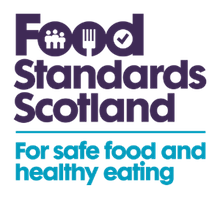A Foodborne Illness Strategy for Scotland
Overview
Foodborne illness remains an important public health problem for Scotland, resulting in disruption to the workforce and burdens on health services which have consequences for the Scottish economy. Prior to the establishment of Food Standards Scotland (FSS), we worked as part of the Food Standards Agency to develop, implement and evaluate interventions for improving the safety of the food chain and help consumers to understand the steps that they need to take to protect themselves and their families from foodborne illness.
We’re now consulting on a draft of our proposal for a new Foodborne Illness Strategy for Scotland which sets out the approach we think we will need to take over the next five years to protect the safety of foods produced and sold in Scotland and reduce the risks of foodborne illness to the people of Scotland.
We’re keen to ensure that the development of our strategy takes account of the views of consumers and stakeholders, and would really welcome your comments.
Why your views matter
To seek views on the priorities, approach and objectives of the strategy, which Food Standards Scotland (FSS) intends to develop and implement during the lifetime of its Strategy 2016-2021, for reducing the risks of foodborne illness to people in Scotland. The Foodborne Illness Strategy for Scotland aims to target the key pathways that are responsible for the transmission of microbiological, chemical and radiological risks throughout the food chain.
The strategy will build on existing programmes of work previously developed by the Food Standards Agency in Scotland (FSAS) which were aimed at protecting Scottish consumers from the risks of foodborne illness. It will take a targeted approach by developing interventions for containing and eradicating contaminants at the key foodborne transmission pathways that have the potential to lead to illness in humans. Workstreams will be developed to evaluate the impact of interventions at all stages, based on uptake and evidence for efficacy.
Audiences
- Academic
- Commercial food testing laboratory
- Consumer
- Government department
- Local Authority
- Public analyst laboratory
- Public health professional
- Researcher
- Scientist
- University
Interests
- adulteration of food
- chemical safety of food
- environmental monitoring
- food analysis
- food authenticity
- food surveillance
- foodborne illness
- laboratory assurance
- Microbiological safety of food
- radiological safety of food


Share
Share on Twitter Share on Facebook